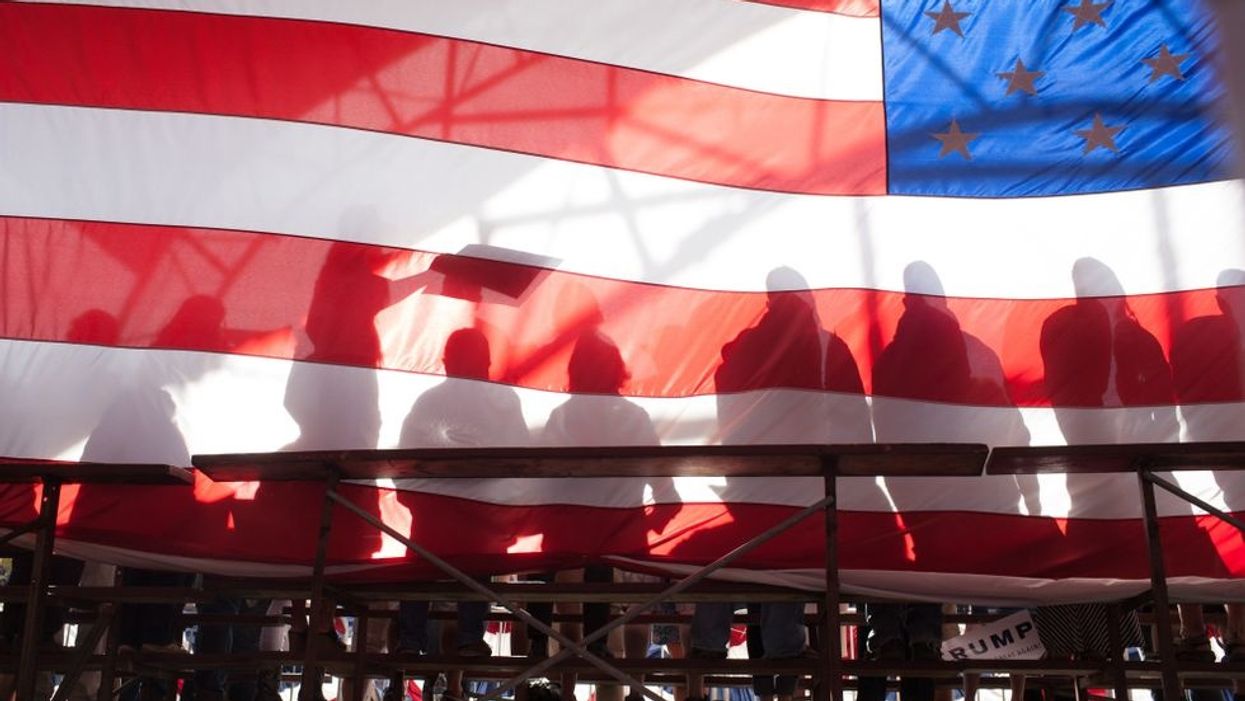Whatever happens in the next few months, we are unequivocally at the end of an era. This month American voters stepped up, turned out in record numbers and changed the course of history. Now is a good time to take stock of what we've learned and how we can use those lessons going forward.
In the past four years, we have learned an incredible amount about democracy and leadership.
We learned about personality cults, malignant narcissism and charismatic leaders. We learned about emoluments, quid pro quos, self-dealing and impeachment. We learned an awful lot about keeping tax returns secret.
We learned about nepotism, loyalty oaths, security clearances and the Presidential Daily Brief. We learned about our nation's allies and standing in the world — and about treaties and peace accords, political and military alliances, and international health and justice organizations.
We learned the difference between administration officials who are Senate-confirmed and only "acting." We learned about the rule of law and how it can get subverted. We rediscovered the obscure Third Amendment and what it could mean for the military quelling protest in the capital.
We learned to differentiate representative democracy from fascism and authoritarianism. We learned that "politicians who emerge from democratic practices can then work to undo democratic institutions," as Yale historian Timothy Snyder wrote way back in 2017. We learned about failed states, oligarchies and banana republics.
We learned about the role of government in public health and public faith. We learned about truth, lies and propaganda. We learned about mutual aid.
We learned that a small group of dedicated bad actors can do a tremendous amount of damage if they have access to the levers of power.
And we learned all this at a dizzying pace, like a college student cramming all night for a test in the morning, because every morning posed a new test.
But we learned about far more than our democracy and the ways it is threatened. We also learned we are not helpless.
We learned how to act in the face of threat — about how to get to work in defense of democracy. We learned how to call and write our senators and House members. We learned how to march, how to stand in, how to sit in and how to hold vigil. We learned how to document and circulate and broadcast. We learned how to lobby, how to agitate and how to protest.
We learned how to write and speak and educate and train ourselves and the next generation of leaders to be active participants in democracy, not bystanders or detached observers. We learned how to build coalitions, and hopefully we learned how to sustain them.
We learned how to run for office, how to recruit a diverse field of candidates, how to register new voters and how to protect the integrity of voting processes. We learned how to canvas, motivate voter turnout, get to the polls and get permission to vote by mail. We learned how to staff polling places and tally ballots and "cure" mistakes on our absentee ballot envelopes.
We learned how to advance legislation, how to register our support, how to express our opposition and how to demand accountability.
But for all the other concepts and ideas that we learned about our democracy, our greatest lesson was this: How to act in defense of our rights — to take responsibility for our freedoms and, just as importantly, to take responsibility for preserving the freedoms of the people around us. To seek truth and justice, especially on behalf of people who are targeted, harassed and persecuted.
We have tried, often imperfectly, to live up to these responsibilities for the past four years. And they do not change for us in the coming era, whatever that era ends up looking like. Responsibility is always the price of democracy. And responsibility demands our active engagement.
For all the learning we've done, we would do well to also re-learn the lesson often ascribed (questionably) to Jefferson: "Eternal vigilance is the price of liberty." Or a more recent version: "Democracy is not a spectator sport."
And as we learn and relearn those axioms, we need to remember not just what we've learned about how democracy functions, though those lessons are important. But we must also, and especially, remember what we've learned about acting on our own behalf.
Whether our people are the ones holding office or not, we cannot afford to check out. The cost of liberty is vigilance. We must continue to act in defense of our democracy, to lobby and advocate and sometimes agitate. To vote and interact with our representatives and build and sustain coalitions.
The lessons we've learned in the past four years have come at a tremendous cost. We should ensure we never have to pay that cost, and surely not an even higher one, ever again. We do that by practicing the lessons we've spent so much time learning in the past four years.



















